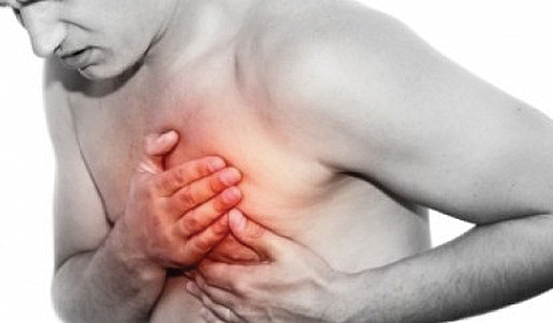Sex and heart attacks

ASIDE from the possibility of their partner finding out, men who cheat on their other halves now have another worry to add—they are more likely to die of heart attack during illicit sex.
Is sex safe for a patient who just survived a heart attack? While majority of couples worry about the safety of having sex again, the reality is only 1 percent of all heart attacks occur during intercourse, according to one eminent cardiologist.
“As a general rule, if you’re healthy enough to walk up two flights of stairs without chest pain or gasping for breath, you are ready to resume sexual activity. For most patients, that’s within a few days of a heart attack. After a severe coronary event, you might have to wait two weeks,” said Adolfo Bellosillo, founder and president of the Foundation for Lay Education on Heart Diseases Inc.
Unfortunately, more than 80 percent of the time, doctors fail to debunk the notion that sexual activity will lead to another heart attack. At the same time, fewer than 20 percent of patients have a discussion with their doctors about sexual activity as reported in the December 2014 issue of the American Heart Association journal, Circulation.
Bellosillo suggested that because patients are uncomfortable bringing up the topic (issue of sex), doctors should be the one to start the discussion.
Negligible
According to Bellosillo, the chance of a heart attack during sex is in fact negligible, adding that sex is physically therapeutic as it is good for the circulation, metabolism, and might even reduce future heart-disease risk. However, Bellosillo said that there are a few other factors to consider.
Discussion with your cardiologist is important. Bellosillo said: “After having a heart attack, some men experience problems getting or maintaining an erection (erectile dysfunction or impotence). These problems can be caused by emotional stress or, in rare cases, by medication such as beta-blockers and diuretics, which may cause low libido. Thus, it’s even more important that doctors discuss changes in sexual desire or function with patients.”
He related that those incidents that made headlines—of dying during sex—is very rare. “In fact, it happened mostly to married men having illicit sex often with younger women in unfamiliar surroundings (like hotels). A significant percentage of these heart attacks also happened to those who had consumed excessive amounts of food or alcohol.”
Warning signs
Bellosillo, who is also head of the Makati Medical Center’s Cardiovascular Rehabilitation and Preventive Cardiology Unit, reminded the public to heed these important signs: chest pain (chest pain during sex that doesn’t go away on its own within 15 minutes, or five minutes after the use of nitroglycerin, should be treated as an emergency); shortness of breath; rapid or irregular heart rate; or dizziness.
Bellosillo added that sexual positions will not matter too much as a study published in the Archives of Internal Medicine showed no significant energy expenditure during sexual intercourse for both partners with the man on top and with the woman on top.
When you’re ready to start having sex again (and your cardiologist gave the green light), you may find the following advice from the British Heart Foundation useful:
- Avoid having sex after a heavy meal.
- Don’t drink too much alcohol before having sex.
- Find a position that is comfortable for you.
- Keep any medication close by in case you need it.
- Keep the lines of communication open with your cardiologist as there are guidelines that may be specific to your individual health status and needs.



















